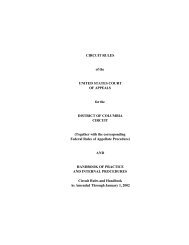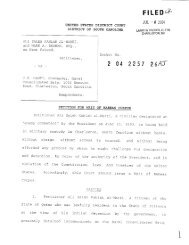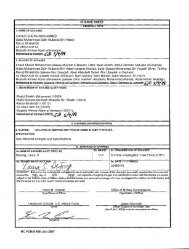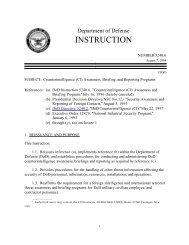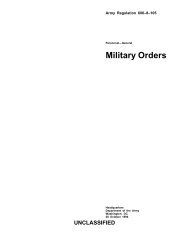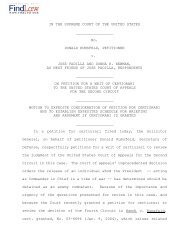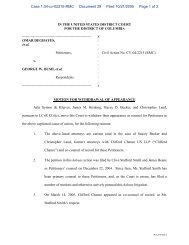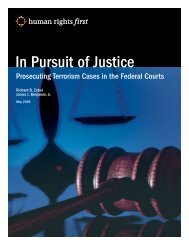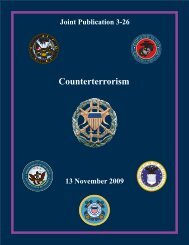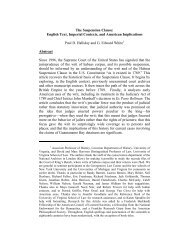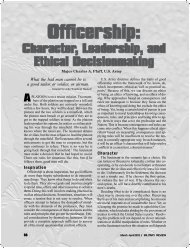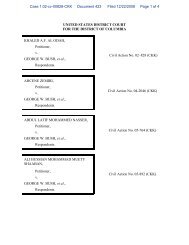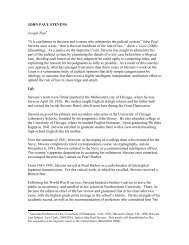Government Merits Brief - Hamdan v. Rumsfeld
Government Merits Brief - Hamdan v. Rumsfeld
Government Merits Brief - Hamdan v. Rumsfeld
You also want an ePaper? Increase the reach of your titles
YUMPU automatically turns print PDFs into web optimized ePapers that Google loves.
7<br />
SUMMARY OF ARGUMENT<br />
I. Petitioner’s pre-trial challenge to his military commission<br />
is jurisdictionally foreclosed by the Detainee Treatment<br />
Act of 2005 and fatally premature. The DTA removes jurisdiction<br />
over a broad class of actions by Guantanamo detainees,<br />
including this action, and establishes an exclusive review<br />
mechanism for challenging the final decisions of CSRTs or<br />
military commissions in the District of Columbia Circuit. The<br />
DTA establishes a statutory rule of abstention that eliminates<br />
all jurisdiction over petitioner’s pre-trial complaints about his<br />
military commission. The DTA thus reinforces the military<br />
abstention doctrine of Schlesinger v. Councilman, 420 U.S.<br />
738 (1975), and makes clear that dismissal of this action is<br />
warranted. Abstention is especially appropriate here because<br />
the armed conflict against al Qaeda remains ongoing and because<br />
Congress itself has determined that post-conviction<br />
judicial review is appropriate and sufficient.<br />
II. The President had ample authority to convene the<br />
military commission against petitioner. Indeed, the DTA<br />
itself conclusively demonstrates that Congress is aware that<br />
the President has convened military commissions in the current<br />
conflict and that Congress recognizes his authority to do<br />
so. That recognition is well-founded. As the President found<br />
in his Military Order establishing military commissions, the<br />
AUMF and two provisions of the UCMJ, 10 U.S.C. 821, 836,<br />
recognize the President’s authority to convene military commissions.<br />
The AUMF authorized the President “to use all<br />
necessary and appropriate force” against al Qaeda and its<br />
supporters. As a plurality of this Court recognized in Hamdi<br />
v. <strong>Rumsfeld</strong>, 542 U.S. 507 (2004), the AUMF thus authorized<br />
the President to exercise his full war powers in connection<br />
with the conflict against al Qaeda, including the authority<br />
necessary for “the capture, detention, and trial of unlawful



